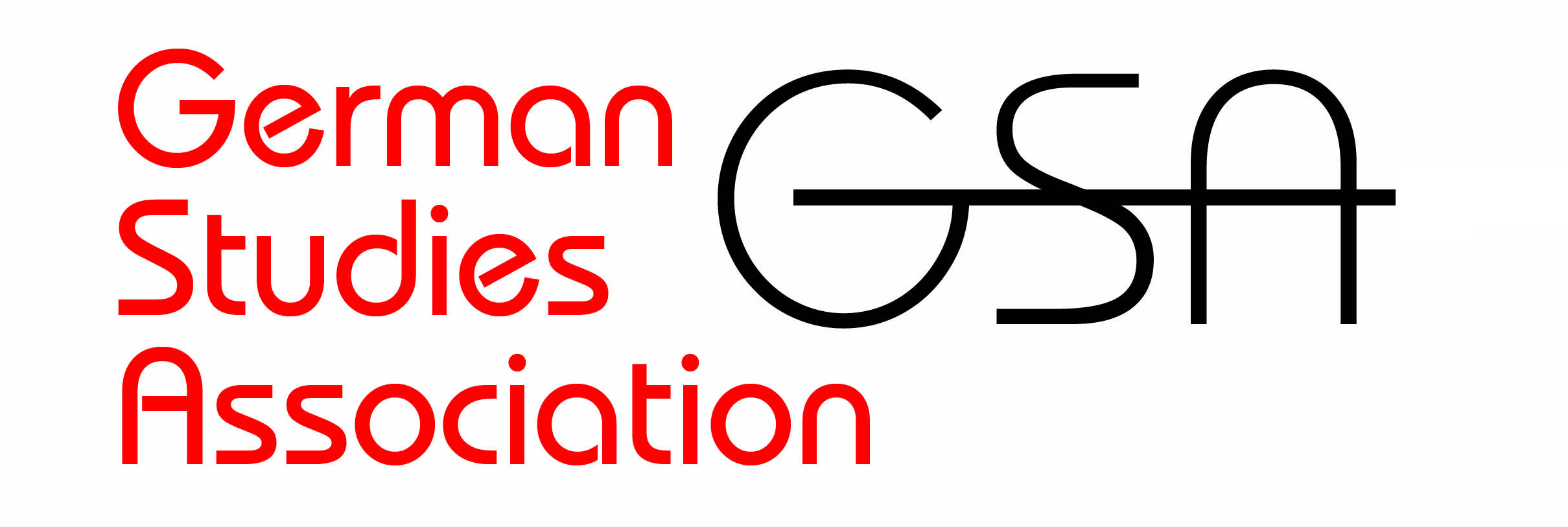June 3, 2020
To: GSA Membership
From: The newly established Committee for the Initiative on Diversity, Equality, and Inclusion (DEI)
This initiative was established by the Executive Board of the GSA in spring 2020. We the undersigned, as its first members, have been meeting to chart a future course for the GSA to assure that it transforms itself into a more diverse, equitable, and inclusive professional organization. Utilizing the diversity of our own scholarly research and teaching and experiences within the profession and the society at large, our first priority has been to open up communication about how differently the organization and its activities are experienced by its members, especially those who come from historically and currently underrepresented and socioeconomically underprivileged backgrounds within German Studies.
The current national situation in the United States illustrates why we each need to commit to understanding societal hierarchies and racial differences around police brutality, the very real dangers of being Black or Brown in America, and the systemic racism that infuses our country.
Genocide, slavery, racism, antisemitism, xenophobia, and many other forms of discriminatory practices saturate the history of the country in which our organization is based.
It is well documented by now that the global pandemic caused by the novel coronavirus quickly unleashed a shadow pandemic of racism and xenophobia. What started two months ago as a spate of hate crimes against Asians and Asian-Americans has now combined with the long entrenched anti-Black racism in this country. The most recent scourge of racism has led with impunity in many police departments and under the lens of the cellphone camera to the murders of unarmed individuals like George Floyd, Ahmaud Arbury, Breonna Taylor, Sandra Bland, Tamir Rice, Trayvon Martin, Walter Scott, and Eric Garner, to name just a few. And it continues with a deadly and racially motivated vigilantism by militant groups, white supremacists, and ethno-nationalists. Our academic association cannot sit idly by without commenting on and joining the pressure to end the state sanctioned violence of Black Americans.
We condemn these murders and the untold, unjustified murders, and acts of verbal and systemic racism that have preceded these. We share the outrage expressed by thousands of our fellow citizens in the last ten days. We support protesters’ insistence that real change occur. We regret the violence in and destruction of neighborhoods, especially by those who exploit the situation for their own nefarious purposes.
The pandemic has exposed the fundamental inequities among segments of the U.S. population: basic inequities in housing and general health, access to regular and emergency healthcare, and implicit bias in health care providers themselves. African Americans across the country on average are dying of Covid-19 at a rate three times as high as white Americans.
Universities, which we claim to be our professional homes, do not exist in societal isolation. Racism poisons academia, it perpetuates academic structures: from recruitment and retention of students, faculty, and staff of color, all the way to the dismissal and marginalization of rigorous and important research and teaching on colonialism and racism. Our experiences in teaching on-line, similar to the mortality rates for Covid-19, confirm the existence of profound inequities in one’s chances of staying healthy and/or getting educated. We mustn’t forget these lessons. Especially during the period in which many universities will continue to teach on-line, we must demand that our administrations address uneven access to technology such as to computers and the internet, to quiet and safe spaces to study, and to the disappearance of many sources of income that students use to keep themselves and their families financially afloat.
In writing this public statement, we are calling on all members of the GSA to recommit themselves to the shared values of equity, diversity and inclusion beyond rhetoric and platitudes. We know that the success of our committee in helping transform the GSA is dependent on careful planning, education, and honest discussions. We are in the process of identifying and articulating problems within our disciplines and the professional organization in order to propose concrete steps, in which all members will play an important role. But a message we would like to be clear about right now is this: We all must work immediately in whatever capacity we can to educate ourselves and those around us about explicit and implicit racial bias, the weaponization of whiteness, and the insidious concomitant of white privilege that is killing African Americans today, as it has been for centuries. We also should note that the presence of white supremacy does not reside in the United States alone as cases of racial profiling, the recent murders in Hanau, as well as the previous murders of Oury Jalloh, Dominique Kouamadio, and others demonstrate in Germany. The stellar scholarship of GSA members, which includes initiatives such as the Diversity, Decolonization and the German Curriculum, the Black German Heritage and Research Organization, the GSA Black Diaspora Studies Interdisciplinary Network, H-Black-Europe, the Black Central Europe Network, and the New Fascism Syllabus, has long exposed the historical burden of antisemitism, toxic patriarchy, colonialism, racism, and xenophobia in the German-speaking world.
We must demand accountability and justice from our political leaders and agitate for systemic change, starting within our institutions and local communities. Silence and self-sanctioned ignorance will only guarantee compliance.
Sincerely,
Alicia E. Ellis
Tiffany N. Florvil
B. Venkat Mani
Eli Rubin
Irene Kacandes (chair)
Committee on GSA Initiative for Diversity, Equity, and Inclusion
